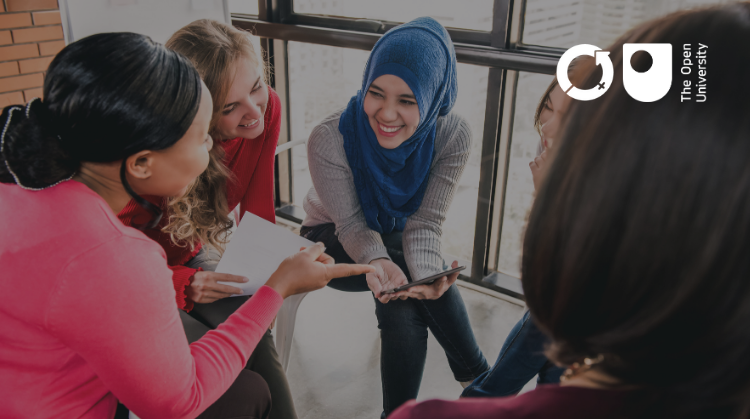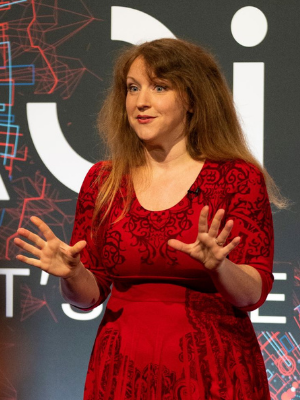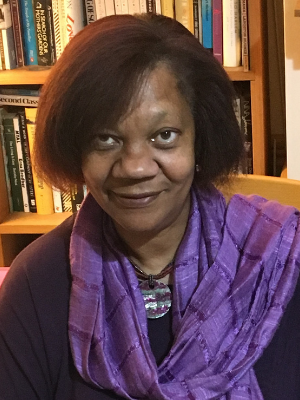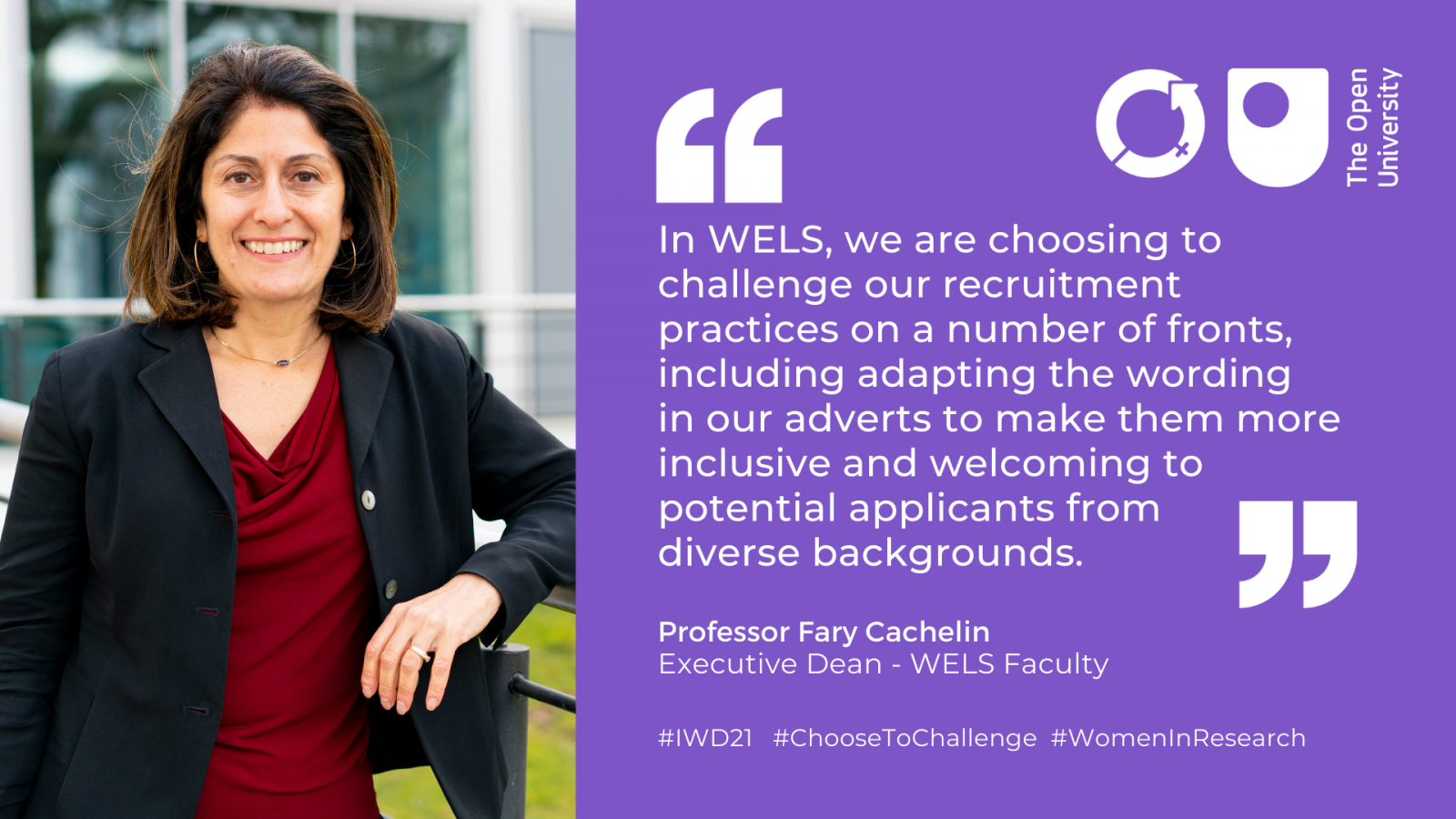Women in WELS: Challenging the Status Quo

International Women’s Day (IWD) is celebrated around the world every year, on 8 March. Events and activities are held worldwide as groups come together to celebrate women’s achievements and rally for equality.
Now in its 110th year, International Women’s Day is powered by the collective efforts of all – it belongs to all groups and it is this shared ownership for driving gender parity that makes IWD so impactful.
As an institution with founding principles built on social justice, The Open University’s research portfolio has a rich stream of women-led research and numerous projects that have an impact on women and society, both in the UK and internationally.
Monday’s cross-faculty online event, Women in Research: Making a Difference to the Wider World, will showcase some of the invaluable research being carried out by women at the OU and why women-led research is so important in order to shape a more inclusive society.
WELS academics Dr Jenny Douglas from the School of Health, Wellbeing & Social Care, and Kate Lister from the School of Education, Childhood, Youth & Sport, join the panel for a thought-provoking discussion around the role of women in research.
We caught up with them to hear more about their personal experiences of gender bias in academia and to find out how being a woman in research has impacted their career in a positive way.
Kate Lister: We still have a lot of work to do on the way we perceive and treat female academic-related staff
Kate is a Lecturer in Education Studies specialising in accessibility and inclusive pedagogy. With a background in educational technology, language learning, and accessible and inclusive pedagogies in international contexts, Kate’s research interests include barriers to learning, mental health and wellbeing in learning, participatory research, student engagement, and inclusive approaches in language.
 "Gender was a key influence on me in my school days. I clearly remember people asking me what I wanted to be when I grew up, and every time I said something ambitious, like a doctor or a vet, I was laughed at and steered towards lower-stakes roles. I was gently, subtly discouraged from going to university, because it was ‘a lot of work’ and surely, I’d ‘want to settle down and have a family.’
"Gender was a key influence on me in my school days. I clearly remember people asking me what I wanted to be when I grew up, and every time I said something ambitious, like a doctor or a vet, I was laughed at and steered towards lower-stakes roles. I was gently, subtly discouraged from going to university, because it was ‘a lot of work’ and surely, I’d ‘want to settle down and have a family.’
"Eventually, I decided to be a hairdresser, which won approval from everyone. But I was miserable as an apprentice hairdresser, and when I quit after 18 months, I felt like it was my fault and that I would never amount to anything. This experience led me to discover The Open University, when I was 21, and to eventually get into teaching.
"The first time I railed against gender expectations was when I decided not to take maternity leave with my daughter but went back to work part-time when she was only two weeks old. I loved my teaching job and didn’t want to leave it for a year to stay home. This raised a lot of eyebrows and was incredibly hard to manage in practice. However, I don’t regret it at all, because that was my first experience of rebelling against what society expected me to do, and it’s shaped my career and my actions since then.
"I guess the main influence on my career is that society did not encourage me to be ambitious. So, when I found that I actually did have ambitions, these were entirely my own; hard-fought for and hard-won. It makes me extremely proud of everything I’ve achieved so far.
"There are, of course, some incredible female role models in the OU. Jane Seale, in WELS, has had a huge influence on my career and my way of thinking. I often hear her voice in my head telling me not to apologise!
"Working with STEM teams, I was lucky enough to have some fantastic female role models in Vic Pearson, Anne-Marie Gallen, and Elaine McPherson; three incredibly different women who navigate male-dominated spaces in extremely diverse yet equally effective and inspiring ways. I also work with the fabulous Joan O’Mahony in Advance HE, whose nuggets of wisdom on gender are always insightful and inspired.
"One thing I really notice in all my female role models (and some of my male ones, too!) is their willingness to coach, share, mentor, and take the time to encourage you in your ambitions – I’ve tapped into an incredibly strong and supportive network of women who support other women and I can’t imagine how different my career would have been without this.
"Now, I do a lot of informal coaching and mentoring. I try to help my female colleagues to build confidence, battle imposter syndrome, and identify their ambitions as well as steps they can take towards achieving these. So many of them were, like me, gently discouraged from having ambition so I want to help women find their drive, their passion, wherever possible.
"We’ve come a long way with our female academics, but we still have a lot of work to do on the way we perceive and treat female academic-related staff. The number of times I’ve been invited to meetings and then asked to be the one to take notes, meaning I couldn’t contribute effectively. This needs to stop!
"If I could give my younger self some advice now, I would say: Find your passion. Ignite your ambition. Find your support network. Don’t apologise (unless you’re actually in the wrong!) Believe in yourself. You deserve this, and you can do it!"
Hear more from Kate Lister in her TEDxOpenUniversity talk from 2019: How to make learning support mental wellbeing
Dr Jenny Douglas: Higher education needs to be a place where Black women can flourish and thrive, so we need to dismantle the existing racial inequalities
Dr Jenny Douglas is a Senior Lecturer in Health Promotion who is passionate about the health and wellbeing of black women. Her research is both varied and wide-ranging, spanning 30 years, on issues of race, health, gender, and ethnicity. The key theme unifying her research and activism is intersectionality – exploring how ‘race’, class, and gender affect particular aspects of African-Caribbean women’s health.
 "Gender is always ‘raced’, so being a Black woman, I have had to fight against racialised gender discrimination and have experienced this throughout my career and in every post. That being said, I am very happy that I am a Black woman, because I think that this brings certain insights to everything I do – I strive to make a difference and address inequities, and this has been the focus of my career.
"Gender is always ‘raced’, so being a Black woman, I have had to fight against racialised gender discrimination and have experienced this throughout my career and in every post. That being said, I am very happy that I am a Black woman, because I think that this brings certain insights to everything I do – I strive to make a difference and address inequities, and this has been the focus of my career.
"There have been many influences throughout my career. The Black women in my family, particularly my mother, and now my daughter is a huge influence! Many Black women writers and academics, including Angela Davis and Kimberley Crenshaw, and the Black women who have been at the Open University: Ann Mitchell, Naomi Watson, Yasmin Gunaratnam, Ronny Flynn, Gail Lewis, Ann Phoenix. My PhD supervisor Gabriele Griffin has also been a huge influence in my career.
"Now, I try to pay it forward by supporting and mentoring other Black women and providing opportunities for discussion and debate through the BME Researchers Group seminar series and the Black Women’s Health and Wellbeing Research Network. We need more Black women in higher education and higher education needs to be a place where Black women can flourish and thrive, so we need to dismantle the existing racial inequalities.
"My advice to women in their early careers is: be passionate, be focused. Seek out a network of women you trust. Believe in yourself and don’t be thrown off course by people who may try to undermine you."
Read more from Dr Jenny Douglas in her Chapter from 'Inside the Ivory Tower: Narratives of women of colour surviving and thriving in British academia'.
Of course, the implications for International Women’s Day aren't just a single day. For WELS, and the OU as a whole, we're working to challenge inequality throughout our practices to tackle gender bias.
Professor Fary Cachelin: We’re adapting our recruitment practices in order to attract a more inclusive and diverse range of applicants
Professor Fary Cachelin is the Executive Dean of the WELS Faculty and a Professor of Psychology and Wellbeing.
"In WELS, we are choosing to challenge our recruitment practices on a number of fronts. We have adapted the wording in our adverts to make them more inclusive and welcoming to potential applicants from diverse backgrounds and have put together a large list of different and diverse outlets for posting our adverts.
"We’re participating in piloting anonymised recruitment processes, ensuring that our recruitment panels are diverse and representative and that our interview questions address inclusive practices.
"We have recently been discussing adopting the Rooney Rule for shortlisting of candidates and, with the help of People Services colleagues, we are collecting and analysing our recruitment data on a quarterly basis in order to track our progress in this area."

Are you already an OU student?
Request your prospectus
Explore our qualifications and courses by requesting one of our prospectuses today.
Request prospectus